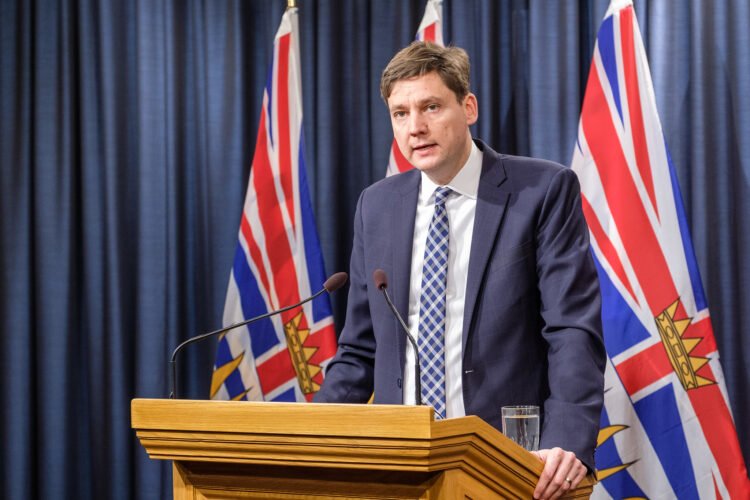In an interview airing Sunday on CTV’s Question Period, Eby emphasized the importance of cooperation with the federal government and other provinces to address the ongoing trade challenges. “I think it’s absolutely vital that the federal government work with premiers and bring us all along, if possible, but at the end of the day, we’ve got to send a strong message to the Americans,” Eby stated.
When asked about the potential use of energy resources as a bargaining chip, Eby made it clear that while he can only speak for British Columbia, the province is fully committed to standing with Canada in the trade dispute. He added that an integrated national strategy is needed, recognizing the impact the trade war has on businesses and consumers on both sides of the border.
“We’re there. We’re absolutely going to stand with Canada, we’re part of Team Canada, we’re all in, we’re going to fight this fight,” Eby affirmed.
This statement comes after U.S. President Trump imposed tariffs of 25 percent on Canadian goods, including a 10 percent tariff on Canadian energy. In response, Canada retaliated with its own tariffs on $30 billion worth of U.S. goods. While Trump later backtracked on some of the tariffs, exemptions were made for certain goods, including autos and items compliant with the Canada-U.S.-Mexico trade agreement.
Despite these adjustments, some Canadian premiers, including Ontario’s Doug Ford, have followed through with additional retaliatory measures, such as imposing export taxes on electricity headed to the U.S. Eby also stated that British Columbia is considering placing tolls on U.S. trucks traveling to Alaska and exploring the possibility of imposing an export tax on electricity.
Eby criticized the ongoing unpredictability of the tariff situation, describing it as chaotic and damaging. “The chaos of the constant threat of tariffs— they’re on again, they’re off again, they’re on this, they’re not on that— is taking a real toll,” he remarked. He emphasized that, for now, the province will continue working closely with the federal government and other provinces to maintain a strong stance.
In addition to addressing the tariff issue, Eby was asked about British Columbia’s involvement in diversifying export markets, especially in the context of Trump’s tariffs. He noted that both Poland and Greece had expressed interest in purchasing Canadian liquefied natural gas (LNG) if it were available. Eby confirmed his government’s support for the second phase of the LNG Canada project, which would expand the existing LNG export facility near Kitimat, B.C.
However, Eby highlighted the importance of ensuring that such projects align with the province’s climate goals and emissions targets. He explained that while electrifying the LNG export facilities is crucial for meeting the province’s 2030 net-zero climate objectives, a phased approach might be necessary due to the time required for full electrification.
Eby concluded by stating that while the 2030 emissions deadline is important, his government remains open to discussions with companies about how to meet the target.

 English
English



























































